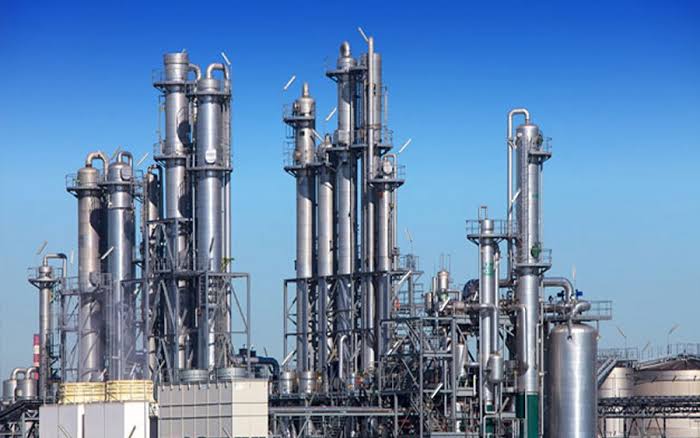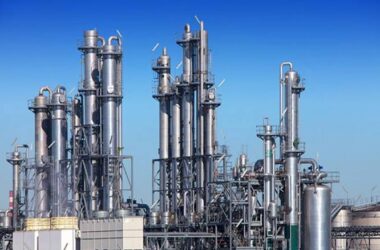The Nigerian National Petroleum Company Limited (NNPCL) may soon cut crude oil supply to the Dangote Petroleum Refinery, scaling back the current allocation of 300,000 barrels per day (bpd). This decision comes as newly rehabilitated local refineries in Port Harcourt and Warri commence operations, increasing Nigeria’s refining capacity, sources revealed on Wednesday.
The anticipated adjustment forms part of the Federal Government’s strategy to equitably distribute crude oil to all functioning refineries while boosting competition in the downstream oil sector. This shift is being implemented under the government’s naira-for-crude initiative, which allows domestic refineries to purchase crude in the local currency.
After years of neglect, the Port Harcourt and Warri refineries, with a combined capacity of 135,000 bpd, have resumed operations. The NNPCL manages these facilities, which were previously shut down and forced the nation to rely heavily on imported petroleum products. The reopening of these refineries marks a critical shift in Nigeria’s refining industry, as the government aims to reduce dependence on imports and stabilize fuel prices.
A reliable source familiar with the developments told PUNCH NEWSPAPER, “With all our refineries gradually coming back online, there will naturally be a reduction in the crude allocated to the Dangote Refinery. The Old Port Harcourt Refinery is operational, the new one is nearing completion, and Warri has also started production.”
Before the naira-for-crude initiative, NNPCL allocated approximately 445,000 bpd to local refineries for domestic consumption. Under the current arrangement, the Dangote Refinery was allocated 300,000 bpd, leaving the remainder for smaller refineries. However, with additional refineries coming online, the crude allocation formula will be revised.
“The supply to the Dangote Refinery will almost certainly drop,” said an insider. “Port Harcourt may get 50,000 barrels, and with Warri now operational and Kaduna expected soon, the 450,000 barrels will have to be shared among all local refineries.”
The source added that the government is focused on increasing oil production to meet the rising demand for crude oil. The Nigerian Upstream Petroleum Regulatory Commission (NUPRC) has set an ambitious target to raise output to over 2 million bpd in 2025, up from the current average of 1.8 million bpd recorded in November 2024.
The naira-for-crude agreement, introduced last year by President Bola Tinubu’s administration, aimed to stabilize fuel prices and protect local refineries from the volatility of foreign exchange markets. The agreement initially granted the Dangote Refinery preferential access to crude, but with new entrants such as the Warri and Port Harcourt refineries joining the market, adjustments are inevitable.
Eche Idoko, the Publicity Secretary of the Crude Oil Refinery Owners Association of Nigeria (CORAN), said the policy has achieved its goal of making petrol more affordable.
He added, “The coming onstream of new refineries will ensure that fuel prices remain stable. However, there is still a need for increased upstream production to meet local refining needs.”
The NUPRC has outlined the crude oil needs of local refineries for the first half of 2025. The Dangote Refinery, with a capacity of 650,000 bpd, is projected to require 99.55 million barrels during this period, averaging 550,000 bpd. Meanwhile, the Warri and Kaduna refineries, as well as several smaller facilities, are expected to collectively consume over 123 million barrels.
To meet this demand, the government is relying on Project 1 Million Barrels, launched in October 2024, to boost production. The initiative aims to bring Nigeria’s daily production closer to 2.5 million bpd in the short term.
“The first half of 2025 will see increased cooperation between local refineries and oil producers,” said an NUPRC spokesperson. “This strategy aligns with Nigeria’s commitment to strengthening its refining capacity and ensuring sustainable oil production.”
While the revival of local refineries marks a significant milestone for Nigeria, challenges persist. The Dangote Refinery’s reliance on imported crude, which is subject to international pricing, could raise costs if domestic supplies decline. Additionally, stakeholders are urging the government to ensure fair crude distribution and address concerns about non-availability of supplies.
Private refiners have called for access to marginal oil fields to secure their own crude supplies. Edwin Devakumar, Vice President of the Dangote Group, expressed frustration with the NNPCL’s failure to meet supply commitments. “We need 650,000 bpd, and NNPCL agreed to provide 385,000 bpd, but they aren’t delivering even that,” he said.










